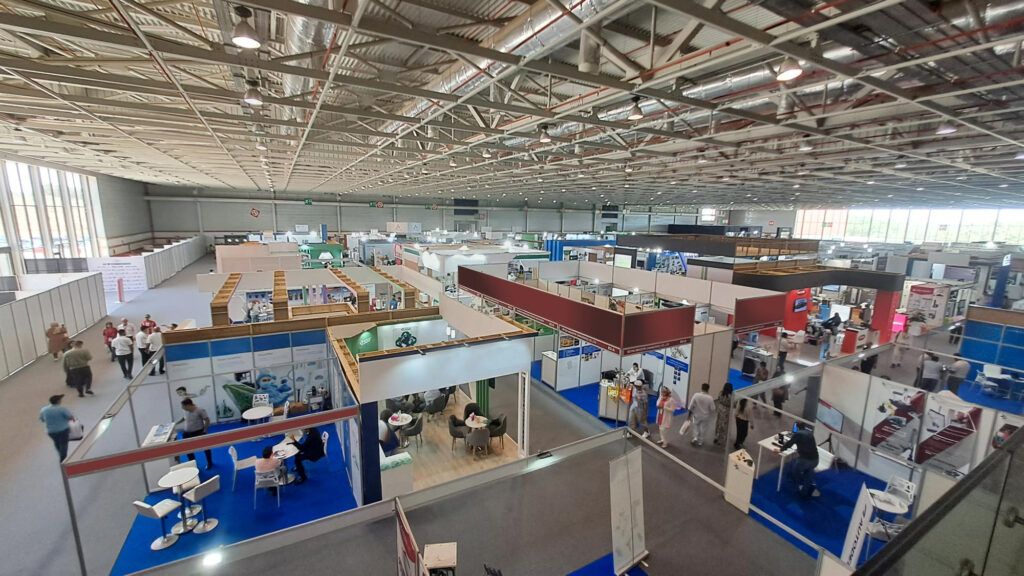Multi-Zone Monitoring: Managing Complex Venue Spaces

Modern venues are no longer simple, single-purpose spaces. From stadiums with multiple tiers to convention centers with numerous halls, managing these complex spaces demands sophisticated monitoring solutions. Multi-zone monitoring through AI vision technology is revolutionizing how venues track, manage, and optimize different areas simultaneously.
Understanding Multi-Zone Monitoring
Effective venue management requires more than just installing cameras in different areas. Modern multi-zone monitoring integrates AI technology, advanced sensors, and real-time analytics to create a comprehensive understanding of how different spaces interact and function together. This new approach is transforming how venues operate and respond to changing conditions.
Core Components:
- Zone-specific monitoring systems
- Centralized control interface
- Real-time data integration
- Custom alert protocols
- Cross-zone analytics
Zone Types and Requirements
Every area within a venue serves a unique purpose and faces distinct challenges. From high-traffic entry points to sensitive VIP areas, each zone requires specific monitoring approaches and solutions. Understanding these unique requirements is crucial for implementing effective monitoring systems.
Entry/Exit Zones:
- Crowd flow management
- Security screening
- Ticket validation
- Emergency evacuation routes
Main Event Spaces:
- Capacity monitoring
- Crowd density tracking
- Emergency protocols
- Performance analytics
Concession Areas:
- Queue management
- Staff deployment
- Inventory tracking
- Peak time analysis
VIP/Restricted Areas:
- Access control
- Security monitoring
- Service level tracking
- Privacy protection
Technology Implementation
Deploying a multi-zone monitoring system involves careful consideration of both hardware and software components. Success depends not just on choosing the right equipment, but on ensuring all elements work together seamlessly to create a comprehensive monitoring solution that meets the specific needs of each zone.
Hardware Requirements:
- High-resolution cameras
- Edge computing devices
- Network infrastructure
- Environmental sensors
- Display systems
Software Capabilities:
- Real-time analytics
- Zone-specific algorithms
- Integration capabilities
- Alert management
- Data visualization
Operational Benefits
Multi-zone monitoring isn’t just about security—it’s about transforming every aspect of venue operations. From improved resource allocation to enhanced customer experience, the benefits of intelligent monitoring extend far beyond basic surveillance, creating value across the entire venue ecosystem.
Security Enhancement:
- Comprehensive coverage
- Quick incident response
- Coordinated security efforts
- Access control management
Efficiency Optimization:
- Resource allocation
- Staff deployment
- Maintenance scheduling
- Energy management
Customer Experience:
- Reduced wait times
- Better space utilization
- Improved service delivery
- Enhanced safety
Real-Time Management
In today’s fast-paced venue environments, the ability to monitor and respond to situations in real-time is crucial. Modern multi-zone systems provide comprehensive live monitoring capabilities that enable venues to stay ahead of potential issues and respond promptly to changing conditions.
Control Room Operations:
- Live monitoring dashboards
- Cross-zone coordination
- Instant communication tools
- Emergency response protocols
Mobile Integration:
- Staff mobile apps
- Real-time alerts
- Remote monitoring
- Instant reporting
Data Analysis and Reporting
Raw monitoring data becomes truly valuable when transformed into actionable insights. Advanced analytics and reporting capabilities help venues understand patterns, predict trends, and make informed decisions about everything from staffing levels to space utilization.
Analytics Features:
- Zone performance metrics
- Cross-zone comparisons
- Trend analysis
- Predictive insights
Reporting Capabilities:
- Customizable reports
- Automated scheduling
- Data visualization
- Compliance documentation
Implementation Strategy
Successfully deploying a multi-zone monitoring system requires careful planning and execution. A well-thought-out implementation strategy ensures that the system meets current needs while remaining flexible enough to adapt to future requirements.
Planning Phase:
- Zone assessment
- Requirements gathering
- Technology selection
- Integration planning
Deployment Steps:
- Phased installation
- Staff training
- Testing procedures
- Performance optimization
Future Developments
The field of multi-zone monitoring continues to evolve rapidly, with new technologies and capabilities emerging regularly. Understanding these developments helps venues stay ahead of the curve and plan for future improvements to their monitoring systems.
Emerging Technologies:
- AI-powered predictive analysis
- Advanced sensor integration
- Augmented reality interfaces
- Autonomous response systems
Conclusion
Multi-zone monitoring is essential for modern venue management, providing the tools needed to handle complex spaces efficiently and effectively. By implementing these systems, venues can ensure better security, improved operations, and enhanced visitor experiences across all areas of their facility.
Transform your venue management with smart monitoring. Schedule a demo →